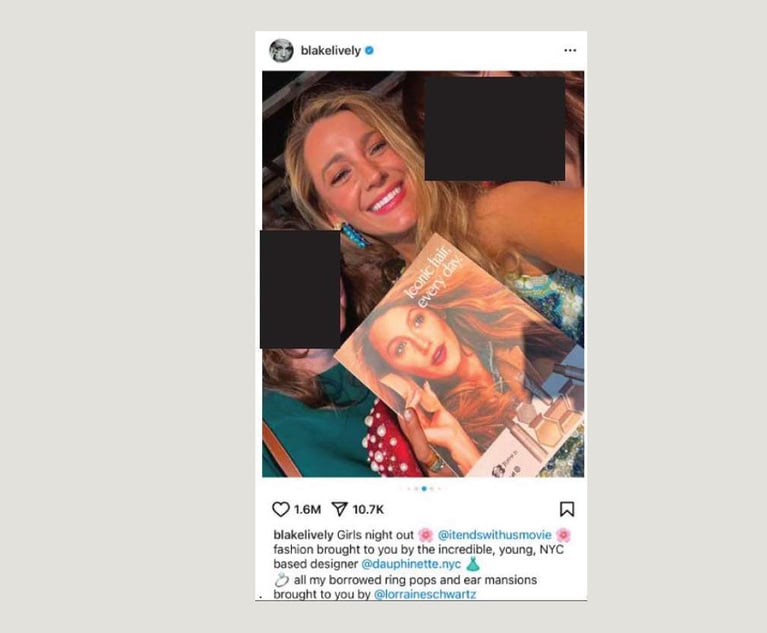The Sweet Science of Jeff Adachi
The longtime San Francisco public defender, who died unexpectedly Friday, was a no-holds-barred fighter in the courtroom. But he knew how to collaborate with city leaders to keep his office on the cutting edge.
February 24, 2019 at 10:27 PM
7 minute read
Adachi achieved a lot during his 16 years as PD, according to Deputy Public Defender Tal Klement. He created social service networks for underprivileged youth, stocking the office with a team of social workers and support staff for clients. He created a clean slate program to expunge clients' old convictions that became a national model. He launched a bail unit that interviewed clients and their families as soon as they were arrested rather than days later. And he hired top immigration lawyers to fight deportations. "He was the most inspiring (and demanding) person I have ever encountered—motivated by his steadfast pursuit of justice for our clients and fueled by his indefatigable spirit," Klement said. "Nothing on this earth could stop him when he believed in his cause."
Along with the big structural changes came important symbolic gestures. When John Tennison's murder conviction was vacated in 2004 after he'd spent 13 years in prison, Adachi hired him to work on the PD's front desk, answering phones and helping clients. "Everyone here has welcomed me with open arms, from the attorneys to the volunteers," Tennison said at the time. Adachi had defended Tennison at trial. He encouraged him to take a workshop on job training and life skills after being released from prison. On the day of his graduation Adachi offered him the job. "It's great to have somebody working on our staff who can relate to our clients," Adachi said. There were a few challenges Adachi couldn't meet. He was the public face behind Measure B, a 2010 ballot initiative to rein in city pensions. He knew the measure would be unpopular—it lost 57 to 43 percent—but gave it his best shot. "Leadership doesn't mean just going along to get along," he said at a debate over the measure. "This is not about going after workers. This is about preserving the great social network that we call San Francisco, of services, of caring for each other." The following year Adachi campaigned to succeed Newsom as mayor but got trounced by Ed Lee. He threw himself back into the work of running the office, while maintaining personal pursuits including, notably, filmmaking. Race relations were a recurring theme. He wrote and directed "The Slanted Screen," a documentary about the portrayal of Asian men in film and television, and "America Needs a Racial Facial," an eight-minute history of racism in America. He also co-directed and starred in "Defender," a 2017 film about his office's battle to represent immigrants in deportation proceedings. "No one lived life more fully than Jeff. And he would want us—in fact, he would demand us—to be strong," said a deputy who asked to be anonymous. "He empowered us to vigorously fight for the rights of immigrants and the undocumented, and he knew the only way to defeat Trump and anti-immigrant forces was to stand up straight in their faces and fight back." Details of Adachi's death were unclear over the weekend, but PD spokeswoman Katy St. Clair said he had been dining in North Beach with a friend when he began to have trouble breathing. EMTs were able to recover a pulse but he later died at the hospital. "We are all devastated," St. Clair said. It was not immediately clear how the office would be structured until a new public defender is appointed, but Chief Attorney Matt Gonzalez will continue to lead on a day-to-day basis. Adachi is survived by his wife, Mutsuko, and his daughter, Lauren. Solis said the number of people he personally touched over a 32-year career is boundless. "At the public defender's office, we knew he was always there for us, no matter what," she said. "We could do the most daring, radical and aggressive lawyering on behalf of the most marginalized people, even if that meant making powerful people angry—because he would have our back, always. And when Jeff had your back, you felt safe."This content has been archived. It is available through our partners, LexisNexis® and Bloomberg Law.
To view this content, please continue to their sites.
Not a Lexis Subscriber?
Subscribe Now
Not a Bloomberg Law Subscriber?
Subscribe Now
NOT FOR REPRINT
© 2025 ALM Global, LLC, All Rights Reserved. Request academic re-use from www.copyright.com. All other uses, submit a request to [email protected]. For more information visit Asset & Logo Licensing.
You Might Like
View All
Morgan Lewis Shutters Shenzhen Office Less Than Two Years After Launch

Texas-Based Ferguson Braswell Expands in California With 6-Lawyer Team From Orange County Law Firm
2 minute read

Justin Baldoni Sues Blake Lively and Ryan Reynolds for $400M in New Step in 'It Ends With Us' Fight
6 minute readTrending Stories
- 1'A Death Sentence for TikTok'?: Litigators and Experts Weigh Impact of Potential Ban on Creators and Data Privacy
- 2Bribery Case Against Former Lt. Gov. Brian Benjamin Is Dropped
- 3‘Extremely Disturbing’: AI Firms Face Class Action by ‘Taskers’ Exposed to Traumatic Content
- 4State Appeals Court Revives BraunHagey Lawsuit Alleging $4.2M Unlawful Wire to China
- 5Invoking Trump, AG Bonta Reminds Lawyers of Duties to Noncitizens in Plea Dealing
Who Got The Work
J. Brugh Lower of Gibbons has entered an appearance for industrial equipment supplier Devco Corporation in a pending trademark infringement lawsuit. The suit, accusing the defendant of selling knock-off Graco products, was filed Dec. 18 in New Jersey District Court by Rivkin Radler on behalf of Graco Inc. and Graco Minnesota. The case, assigned to U.S. District Judge Zahid N. Quraishi, is 3:24-cv-11294, Graco Inc. et al v. Devco Corporation.
Who Got The Work
Rebecca Maller-Stein and Kent A. Yalowitz of Arnold & Porter Kaye Scholer have entered their appearances for Hanaco Venture Capital and its executives, Lior Prosor and David Frankel, in a pending securities lawsuit. The action, filed on Dec. 24 in New York Southern District Court by Zell, Aron & Co. on behalf of Goldeneye Advisors, accuses the defendants of negligently and fraudulently managing the plaintiff's $1 million investment. The case, assigned to U.S. District Judge Vernon S. Broderick, is 1:24-cv-09918, Goldeneye Advisors, LLC v. Hanaco Venture Capital, Ltd. et al.
Who Got The Work
Attorneys from A&O Shearman has stepped in as defense counsel for Toronto-Dominion Bank and other defendants in a pending securities class action. The suit, filed Dec. 11 in New York Southern District Court by Bleichmar Fonti & Auld, accuses the defendants of concealing the bank's 'pervasive' deficiencies in regards to its compliance with the Bank Secrecy Act and the quality of its anti-money laundering controls. The case, assigned to U.S. District Judge Arun Subramanian, is 1:24-cv-09445, Gonzalez v. The Toronto-Dominion Bank et al.
Who Got The Work
Crown Castle International, a Pennsylvania company providing shared communications infrastructure, has turned to Luke D. Wolf of Gordon Rees Scully Mansukhani to fend off a pending breach-of-contract lawsuit. The court action, filed Nov. 25 in Michigan Eastern District Court by Hooper Hathaway PC on behalf of The Town Residences LLC, accuses Crown Castle of failing to transfer approximately $30,000 in utility payments from T-Mobile in breach of a roof-top lease and assignment agreement. The case, assigned to U.S. District Judge Susan K. Declercq, is 2:24-cv-13131, The Town Residences LLC v. T-Mobile US, Inc. et al.
Who Got The Work
Wilfred P. Coronato and Daniel M. Schwartz of McCarter & English have stepped in as defense counsel to Electrolux Home Products Inc. in a pending product liability lawsuit. The court action, filed Nov. 26 in New York Eastern District Court by Poulos Lopiccolo PC and Nagel Rice LLP on behalf of David Stern, alleges that the defendant's refrigerators’ drawers and shelving repeatedly break and fall apart within months after purchase. The case, assigned to U.S. District Judge Joan M. Azrack, is 2:24-cv-08204, Stern v. Electrolux Home Products, Inc.
Featured Firms
Law Offices of Gary Martin Hays & Associates, P.C.
(470) 294-1674
Law Offices of Mark E. Salomone
(857) 444-6468
Smith & Hassler
(713) 739-1250






